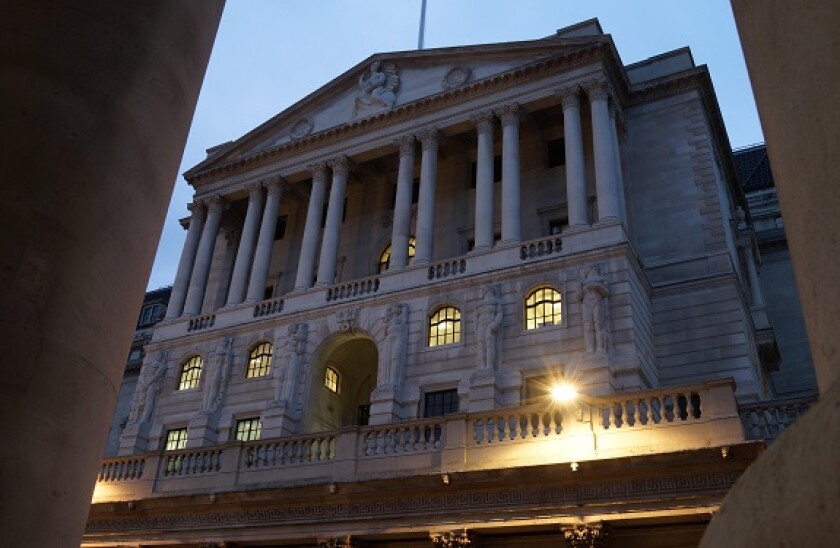The Bank of England is weighing up whether to modify its capital framework, as part of an effort to deal with climate risks more effectively.
The UK banking sector could end up with a new “escalating” capital target as a result, while individual firms may be asked to calculate their capital requirements using more forward-looking assumptions.
The Prudential Regulation Authority (PRA) published its thoughts last week in a report on climate change adaptation, which looked at the relationship between the UK capital regime and climate risk management.
It determined that capital requirements should not be used to try and address the causes of climate change.
The Bank said this was partly because there could be “unintended consequences” from incentivising or disincentivising certain types of investment, and also because “other more direct public policy interventions, for instance emissions regulations or carbon pricing, would offer better incentives for action across the wider economy”.
But, at the same time, the PRA determined that its capital regime could provide a useful means for combatting the consequences of climate change.
The regulator implied that changes would be required, as it identified three clear ways in which normal risk frameworks fail to recognise the unique aspects of climate-related financial risks.
Firstly, the PRA said that banks suffered “capability gaps” when trying analyse their climate risk exposures — they may lack data, for example, or they may limitations in their modelling techniques.
Secondly, the report found “regime gaps” in view of the way that firms calculate their individual or microprudential capital requirements. For instance, market risk models can rely very heavily on historical data with a limited scope to reflect the probability that climate change will have a more severe impact in the future compared with in the past.
Finally, the Bank said there were also “regime gaps” related to the macroprudential risk framework, which fails to acknowledge specifically that there is a systemic threat posed by climate change.
Framework gaps
Before acting on its findings, the PRA wants to understand more about the “materiality of gaps in the current frameworks”.
It will consider relevant time horizons for capital requirements covering climate risks, as well as what might be “severe but plausible” scenarios for those time horizons. It also wants to understand more about the financial sector’s exposure to climate risk, particularly when considering the possible impact of other mitigating actions — not related to capital requirements.
“The Bank is therefore putting out a ‘Call for Papers’ on this topic and will host a Research Conference in the fourth quarter of 2022,” the report said. “Based on this internal and external work, the PRA expects to be in a better position next year to decide whether a different approach to capital should be considered (now or in the future) in the context of climate change”
The PRA offered several clues as to how it could update the UK’s capital framework following its review.
It suggested it could introduce a “more explicit forward-looking element” into methodologies underpinning the calculation of microprudential capital requirements, for example. It could also bring in an “escalating climate buffer” as part of the macroprudential buffer framework.
In the near term, the Bank could issue more detailed guidance for firms on modelling and data collection techniques with respect to climate risks.
“The direction of travel on climate-related risks is becoming increasingly clear,” said John Cronin, an analyst at Goodbody, commenting on the PRA report.
“We note that the European Banking Authority is conducting a similar review of capital rules with a view to potentially incorporating climate risks in its requirements.”

